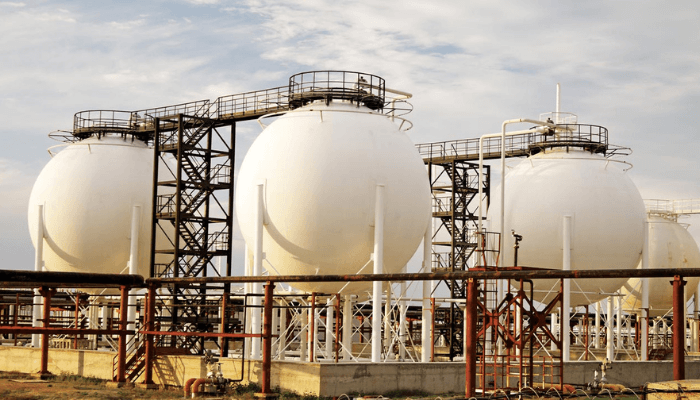How Agricon West Africa turned to gas-powered energy to drive food production
Agricon West Africa Limited is rewriting the narrative of agricultural processing in Nigeria by harnessing gas-powered energy to fuel its ambitious rice production. Despite the challenges posed by unstable grid supply, Agricon is demonstrating resilience and innovation in a sector often hindered by energy limitations.
Established in 2022, Agricon entered Nigeria’s agricultural space with a bold mission: to process homegrown rice at scale and reduce the country’s dependence on imports. With a 240-ton-per-day parboiling capacity, the company aligned its operations with government policies promoting self-sufficiency in food production.
However, the journey was not without hurdles. According to Emmanuel Njin, Plant Manager at Agricon, energy was the biggest challenge from the outset. Initially reliant on diesel generators, the company faced high fuel costs and limited operational efficiency—an all-too-common reality for many Nigerian businesses.
Running diesel generators was a huge financial burden, responsible for a larger running cost with less output,” explained Emmanuel Njin, plant manager at Agricon West Africa Limited.
Read also: Experts list gains of gas-powered energy
Faced with mounting fuel bills and stalled production, Agricon’s management sought a more sustainable and cost-effective energy solution—one that would ensure stable power and save between 60% and 65% of energy costs, while aligning with global calls for cleaner energy. Their answer was a 1.5MW Jenbacher plant, powered by compressed natural gas (CNG).
Compared to diesel, the gas-powered generator cut fuel consumption by half, while delivering better and more reliable performance. Beyond the economic benefits, the environmental impact was also significant. “The emission of filtered and clean exhaust gases is another advantage,” Njin noted, highlighting the power plant’s contribution to reducing carbon footprint and promoting greener industrial practices.
Agricon’s energy transition not only improved operational efficiency but also reinforced its commitment to sustainable agriculture and local food production—a model for other Nigerian businesses navigating similar challenges
Agricon selected Clarke Energy, the authorised distributor of Jenbacher gas engines in Nigeria, to deliver its 1.5MW gas power plant, including the front-end engineering design (FEED), commissioning and currently provides maintenance for the equipment.
“Clarke Energy services have been excellent,” Njin said, praising the company’s responsiveness in servicing the plant before, during, and after maintenance. The solution has relieved Agricon from the instability of the national grid while providing a sustainable and cost-effective energy lifeline.
Yiannis Tsantilas, Managing Director of Clarke Energy in Sub-Saharan Africa, emphasised the critical role of food in national development, stating:
“Food is a fundamental human necessity—essential not only for survival and overall well-being, but also a cornerstone of national security. It underpins economic, social, and political stability across the globe.”
Read also: Gas safety takes center stage in Nigeria’s energy transition
He highlighted rice as a staple food for many Nigerians, noting its importance in providing energy and essential nutrients for a healthy living.
“At Clarke Energy, we believe that resilience in Nigeria’s production processes must include access to reliable, affordable, and cleaner energy alternatives, which is the bedrock to building a sustainable economy.”
Tsantilas commended Agricon West Africa Limited for its commitment to food security, recognising its efforts to deliver nutritious and locally processed food to Nigerian families. He celebrated their investment in energy infrastructure:
“Their investment in a 1.5MW power plant is a testament to their visionary leadership and commitment to sustainable growth. We are proud to partner with Agricon West Africa Limited to help scale their operations and ensure their lights are always on.”
Agricon’s energy story stands as an example for other industries grappling with Nigeria’s perennial power shortages. By leveraging CNG-powered generation, the company demonstrates how businesses can achieve both operational stability and environmental responsibility.
The switch to gas aligns with Nigeria’s gradual embrace of gas as a transition fuel. With abundant natural gas reserves, the federal government has been promoting the adoption of natural gas as part of its strategy to reduce reliance on imported fuel, lower emissions, and strengthen local industries.
For Agricon, the move has already paid off. Energy is no longer a stumbling block but a foundation for growth. The company is now positioned to focus on scaling production, reaching new markets, and competing on the global stage, all powered by a more reliable, eco-friendly energy source.
Read also: Proton Energy secures Afreximbank backing for 500MW power project
Nigeria’s energy crisis remains largely unresolved. National grid outages and reliance on diesel generators continue to limit manufacturing, agriculture, and services. Yet companies like Agricon are proving that alternatives exist. By investing in gas-powered technology, they are not only reducing costs but also helping the nation edge closer to sustainable industrialisation.
As the country strives for food self-sufficiency, Agricon West Africa’s blend of agricultural innovation and energy resilience provides a template for progress. With the proper infrastructure, policy support, and investment, Nigeria could unlock similar success stories across multiple sectors.
For now, the hum of a Jenbacher generator symbolises more than just electricity. It represents hope for farmers, consumers, and a nation eager to power its future sustainably.

